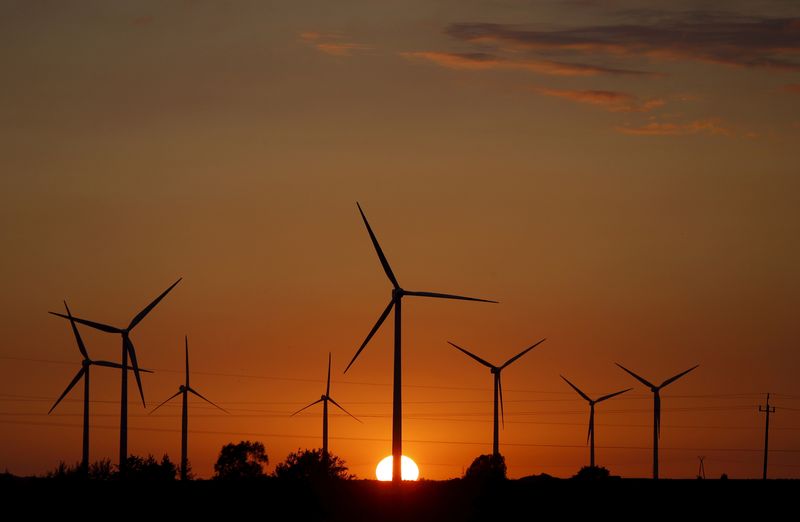BRUSSELS (Reuters) - The European Union reached a provisional deal on Thursday on higher renewable energy targets, an important pillar of the bloc's plans to fight climate change and end dependence on Russian fossil fuels.
Negotiators of the European Parliament and the Council, representing EU members, agreed that by 2030, the 27-country EU would commit to sourcing 42.5% of its energy from renewable sources like wind and solar, with a potential top-up to 45%.
The EU's current 2030 target is for a 32% renewable energy share.
The EU got 22% of its energy from renewable sources in 2021, but the level varied significantly between countries. Sweden leads the 27 EU countries with its 63% renewable energy share, while in Luxembourg, Malta, the Netherlands and Ireland, renewable sources make up less than 13% of total energy use.
A rapid shift to renewable energy is crucial if the EU is to meet its climate change goals, including a legally binding aim to cut net greenhouse gas emissions by 55% by 2030, from 1990 levels.
EU countries will have to raise to 29% the share of renewables in energy used by the transport sector. EU industry would increase its use of renewables by 1.6% per year, with 42% of the hydrogen it uses deriving from renewable sources by 2030 and 60% by 2035.
The directive added targets for buildings and sought accelerated permitting processes for renewable energy projects.
Renewable energy targets have gained significance since Russia’s invasion of Ukraine as the EU has vowed to end its dependence on Russian fossil fuels by 2027 - and plans to do this mostly through locally produced, low-carbon energy.
Reaching the new goals will require massive investment in wind and solar farms, scaling up production of renewable gases, and reinforcing Europe's power grids to integrate more clean energy.
The European Commission has said additional investments of 113 billion euros ($123 billion) in renewable energy and hydrogen infrastructure will be needed by 2030, if EU countries are to end their reliance on Russian fossil fuels.

The deal must be approved by the EU Parliament and EU countries to become law, normally a formality.
($1 = 0.9226 euros)